PCs vs. consoles? The future of gaming looks blurrier than ever
Ah, the PC gaming versus console gaming debate. As we head into 2025, the discussion is no longer about whether playing Super Mario on the SNES is better or worse than Doom on the PC. The line between console and PC gaming has grown so blurry that the similarities now far outweigh the differences. There’s little that separates them.
Console makers are growing more agnostic with their wares, shifting from exclusivity to a cross-platform embrace. Sony and Microsoft are both doing this to a staggering degree, with only Nintendo mostly in its own world. And if you’re a PC gamer, you likely possess at least one or two consoles, even if it’s just a Switch.
Let’s dive into how consoles and PCs are more alike than ever, and how each console maker still tries to remain unique going into 2025.
What makes PC gaming unique?For better or worse, PCs are more complicated than gaming consoles. You have immense flexibility when it comes to building your own machine, upgrading individual parts, and running all kinds of games at various settings. You also have options for souping up your rig with all kinds of third-party accessories and goodies.
But that flexibility comes with non-trivial complexity. Not all hardware options fit together, and you can run into software glitches due to certain PC parts being incompatible or running on outdated drivers. In shorts, there’s a vast array of potential conflicts that can pop up, which is why entire communities have risen around PC troubleshooting.
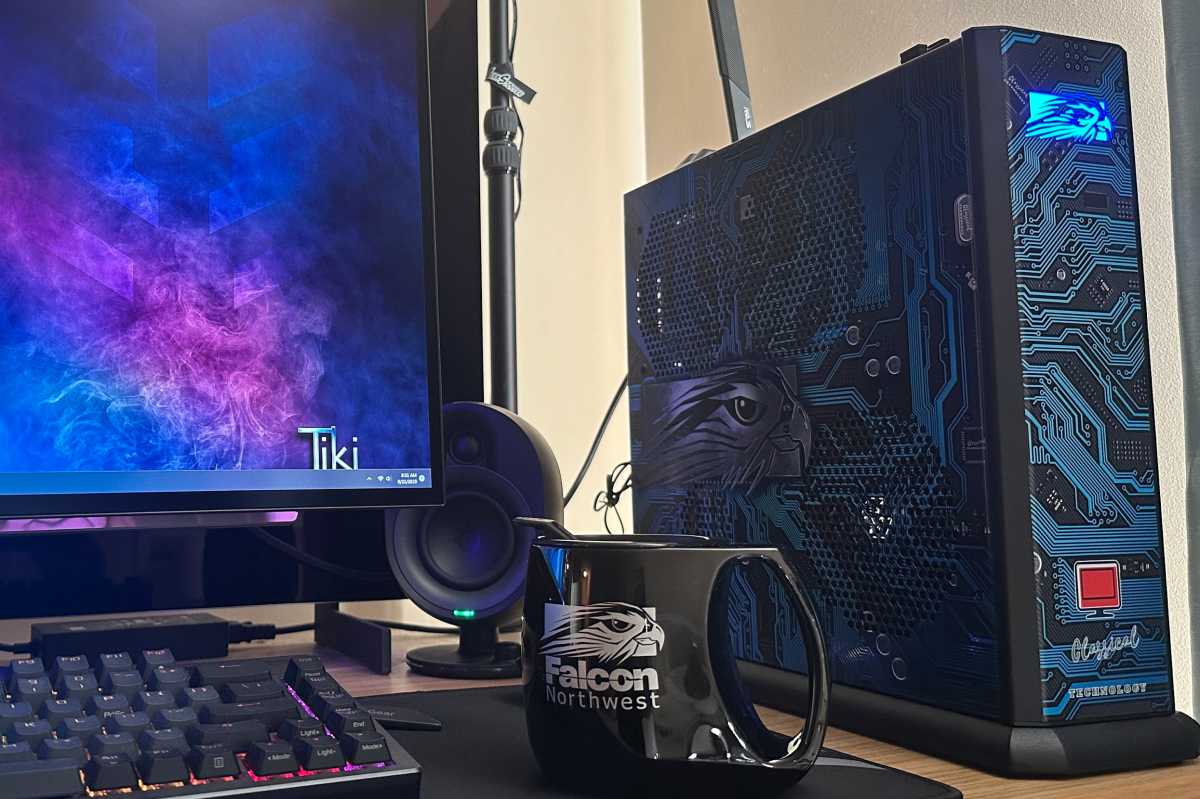
Thiago Trevisan / IDG
But that complexity can be a worthwhile trade-off for techies and tinkerers. You may find lots of joy in the constant upgrade cycle for your GPU, for example, or being able to eke out another year or two of life with a simple part replacement. While PCs are clearly more expensive than consoles, this ability for upgrades allows you to keep your rig humming along with top-tier performance.
Consoles aim to be plug-and-play, with minimal graphics tweaks available since they all run on the same hardware uniformly. This homogeneity makes it much easier for developers to optimize games for consoles, so you run into far fewer issues than you do on PCs. (If you look at console games from decades ago, you’ll rarely find graphics settings. That’s a modern trend rooted in consoles becoming more PC-like.)
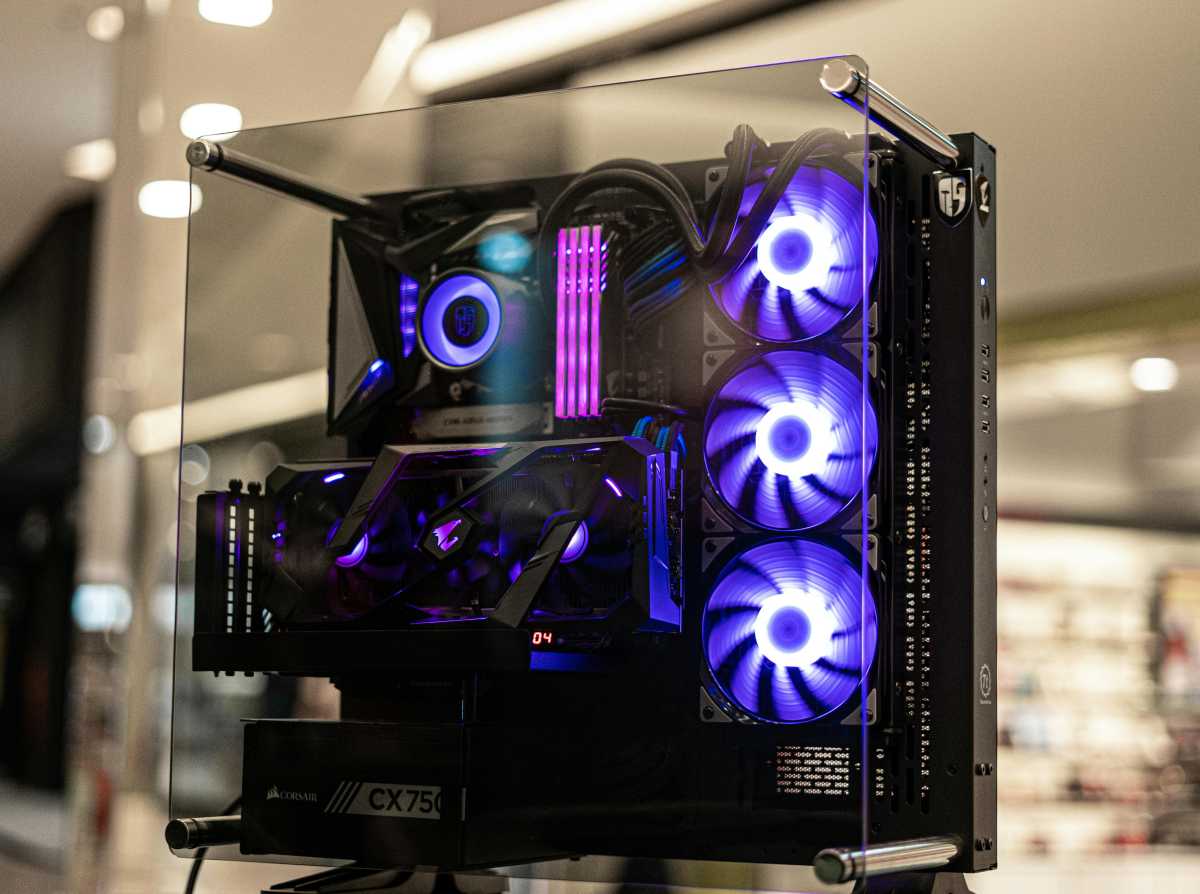 Pexels: Nathan b Caldeira
Pexels: Nathan b Caldeira
Most games on next-gen consoles like the PlayStation 5 limit your options for resolution modes and frame rates. On PC, however, you can choose from a spectrum of resolutions and tweaks that let you customize which features to toggle and how much FPS you’re willing to sacrifice.
And how about where and how you play? Traditionally, PC gaming required that you sit at a desk while console gaming mainly happened from the comfort of a couch. This is changing, though, with features like Steam Big Picture for PC gaming on a TV with just a controller. Indeed, more and more PC gamers are swapping their keyboards and mice for the convenience of wireless controllers.
How Xbox and PC gaming are alikeThe line between Xbox consoles and PC gaming continues to blur as we head into 2025. While Xbox hardware sales seem to lag behind the PlayStation 5, Microsoft doesn’t seem to mind. They’re taking a platform-agnostic approach that’s heavily influencing the PC side.
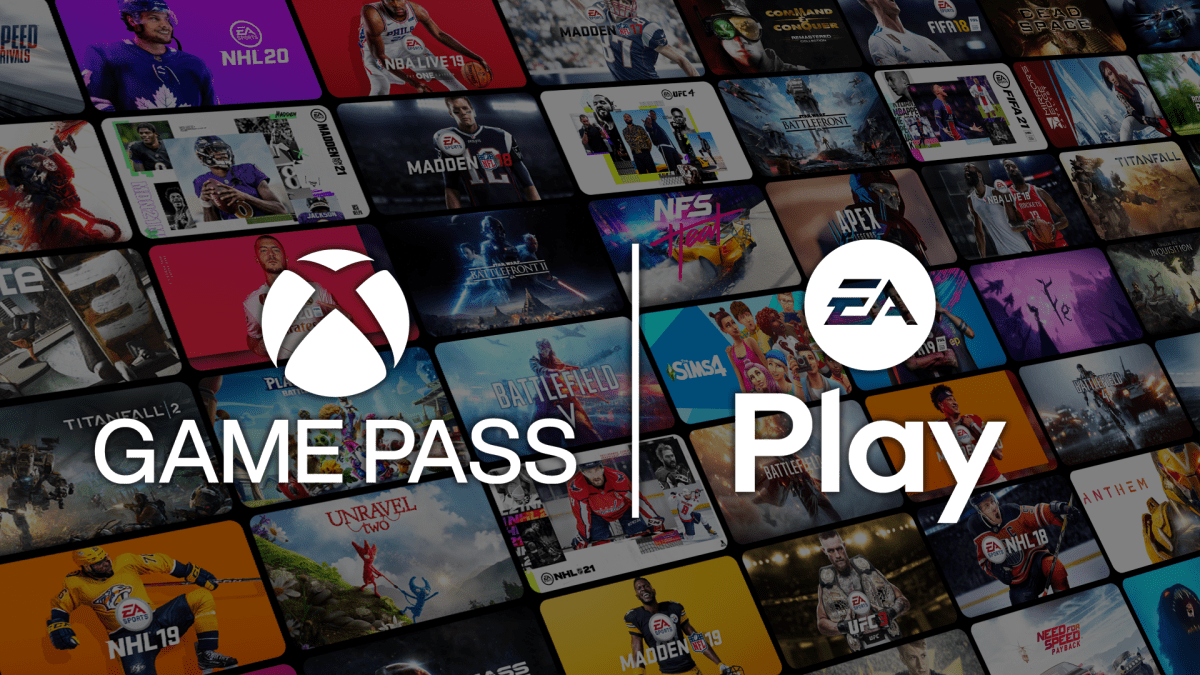
Microsoft
Microsoft’s Game Pass subscription isn’t just an Xbox feature — it’s a service that has spread to multiple platforms. Gone are the days where console exclusives were playable only on an Xbox. They’re now readily available on PC, too.
Microsoft has insured that its stable of gamer favorite franchises are always stocked, too. With the acquisition of massive game studio Activision Blizzard, Microsoft can truly spread beyond the Xbox alone.
Under the hood, modern Xbox consoles are basically PCs with bespoke parts (e.g., AMD-provided internals). It makes sense that Microsoft wants to push its impressive collection of titles to as many platforms as possible, to expose the maximum amount of gamers to its wares. This is just like PC gaming, where a developer doesn’t care about your brand of PC as long as it’s packing enough hardware to play their game.
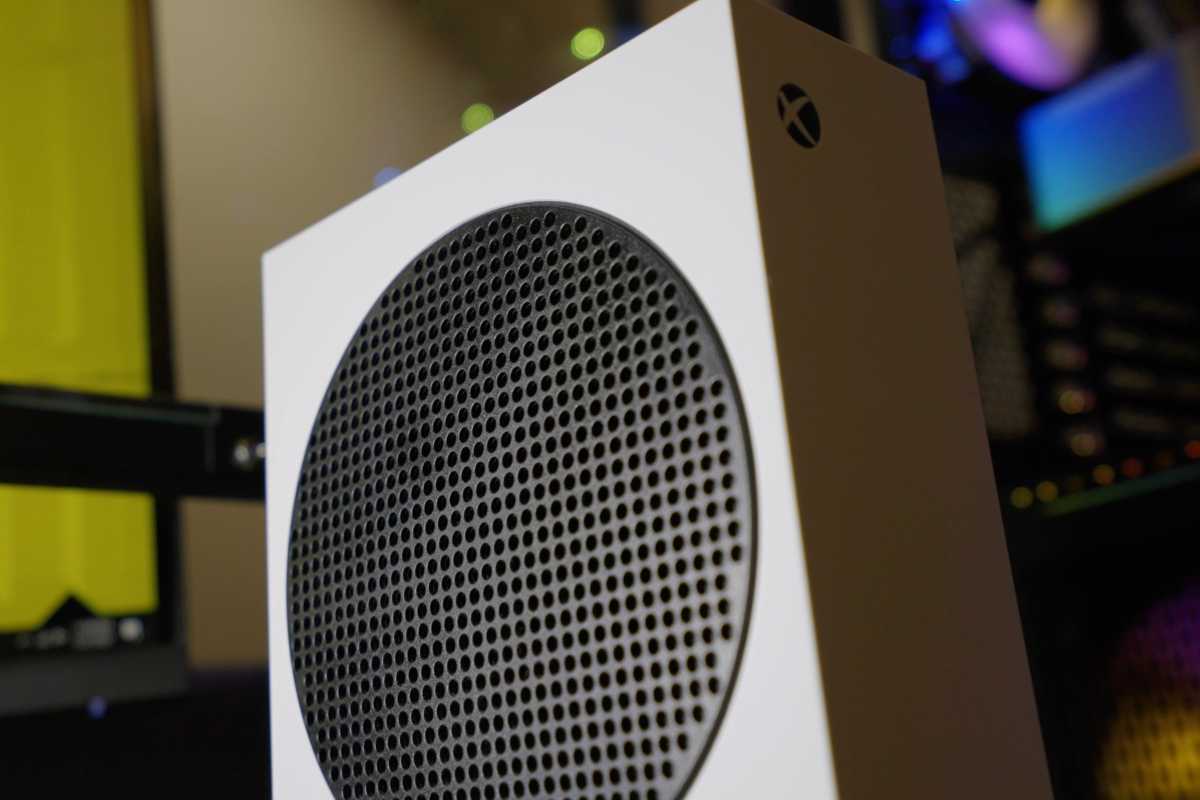
Thiago Trevisan / IDG
The downside to this is that the Xbox as a console has lost its magic, likely reflected in its subpar sales compared to Sony’s PlayStation. With a lack of high-profile exclusives that would encourage gamers to go out and buy an Xbox of their own, it’s now more of a free agent.
On the plus side, you can enjoy the tremendous library of Xbox games on many other platforms, which is a net positive for consumers. This freedom of choice has always been a trait popular with PC gamers, and now the Xbox joins the fray with its software.
Lastly, the way you interface with an Xbox and PC are virtually the same now. Remember when console controllers had proprietary connections that only worked with their respective consoles, like the SNES? These days, we have USB, Wi-Fi, and Bluetooth standards that allow even proprietary Xbox controllers to work seamlessly with PCs.
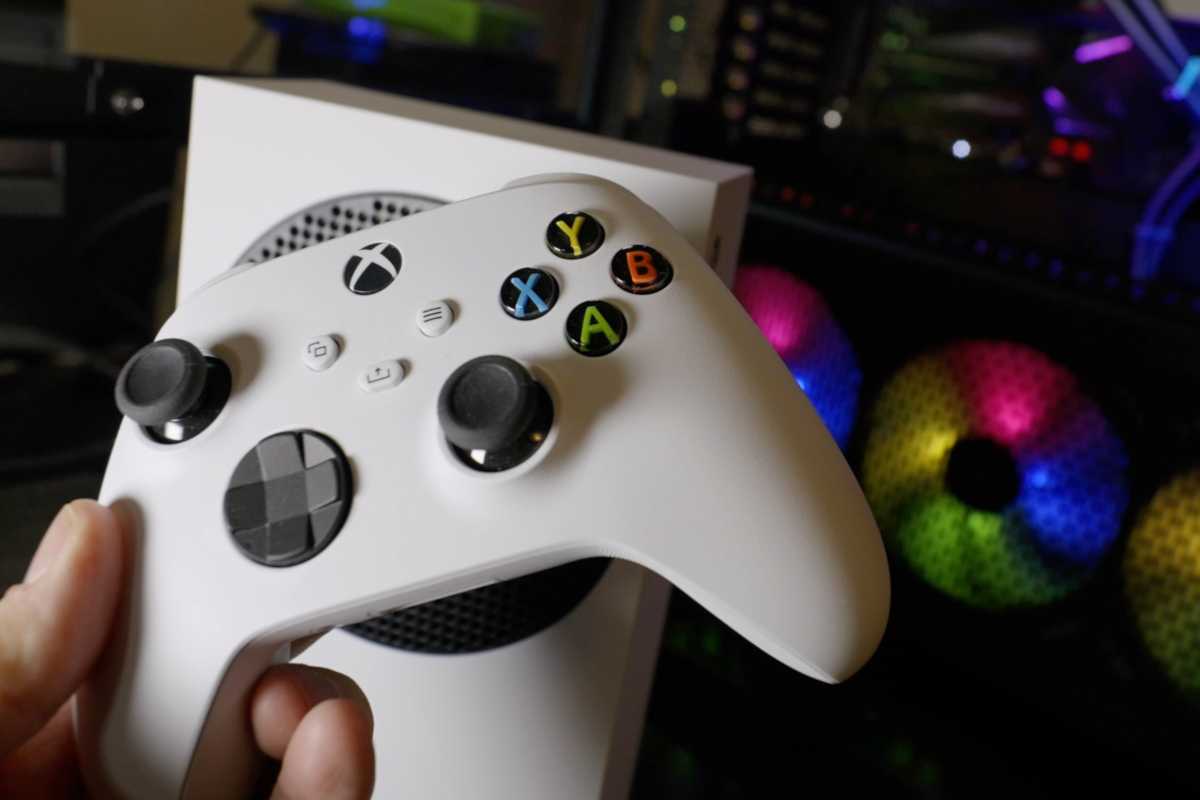
Thiago Trevisan / IDG
Bluetooth makes it a cinch to connect the Xbox controller that came with your console to your PC and have it function exactly the same. Want to turn your expensive gaming laptop into an Xbox? Just use PC Game Pass with an Xbox controller. It’s basically a console at that point.
All in all, the Xbox has already made its transformation into a PC and remains the console that’s closest to the platform. Going into 2025, the line between the two is almost non-existent.
How PS5 and PC gaming are alikeThe story of blurring lines gets a bit complicated when you look at the Sony PlayStation 5 and its newer Pro variant. The trajectory might be slower, but it shares similarities with the Xbox becoming PC-like.
There’s no denying that the Sony PlayStation is — and has always been — one of the most popular consoles, challenged only by Nintendo. The PlayStation has led the way during the last two console generations, with tip-top focus on both performance and playability.
But whereas the PlayStation, like the Xbox, once used to pride itself on console exclusives, Sony has taken consumer-friendly turns in recent years. In 2022, they promised to bring more PS games to PC. In 2024, that promise expanded to PC, mobile, and cloud. If you check your favorite game marketplace today, you’ll find no lack of once-exclusive PS titles that are now readily available on PC.
The only caveat with this is that Sony plans to stagger its exclusives between the PS5 and PC, so as to not render its hardware obsolete. For example, while we’ll eventually get titles like Spider-Man 2 on PC, we’ll have to wait. Originally released in October 2023 on the PS5, it won’t come to PC until January 2025.
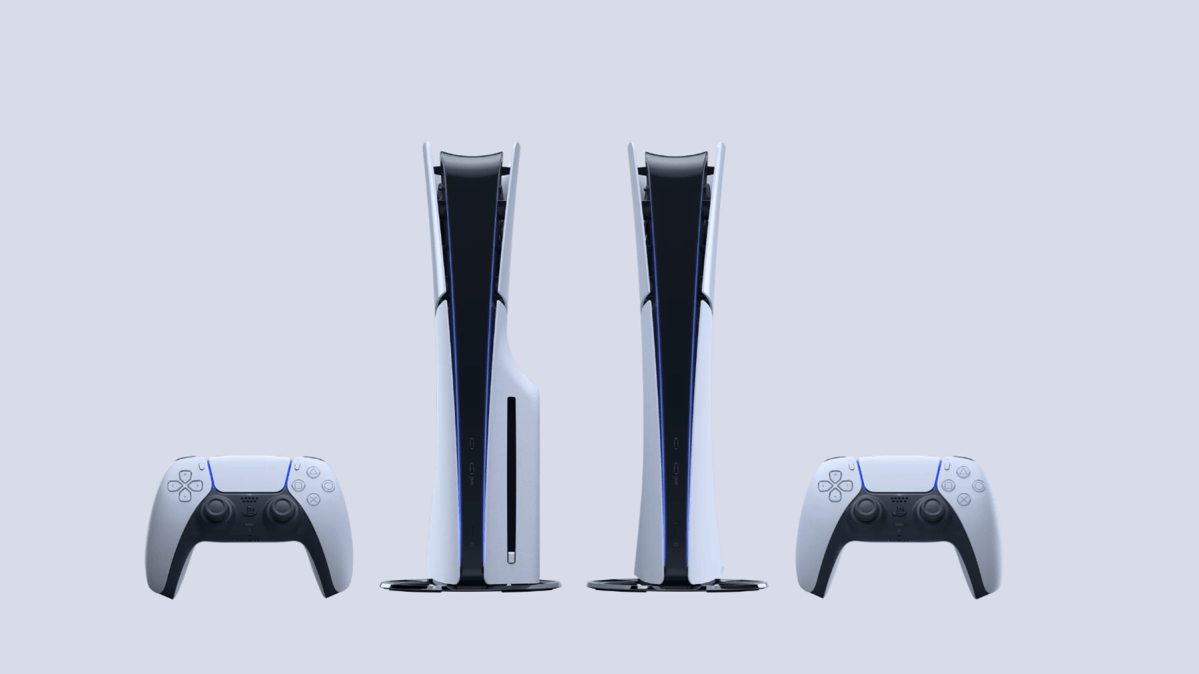
Sony
God of War, Ghost of Tsushima, Sackboy, and Spider-Man are just some previously PS-exclusive titles that now run wonderfully on PC. Sure, Sony obviously wants to grab market share with its franchises from PC gamers. But I’d argue there’s more to it than that. Sony is clearly testing the waters to merge the PC and PlayStation experience together.
Much like the Xbox, the PlayStation is similar to the PC under its hood. It shares in the Xbox’s AMD-based hardware, with its bespoke quality only differing it a bit from what you’d find in a typical PC.
Sony has also entered the DIY PC builder space, if ever so slightly. With the ability to upgrade the NVMe drive in the PS5, gamers can now add extra storage regardless of what the console shipped with.
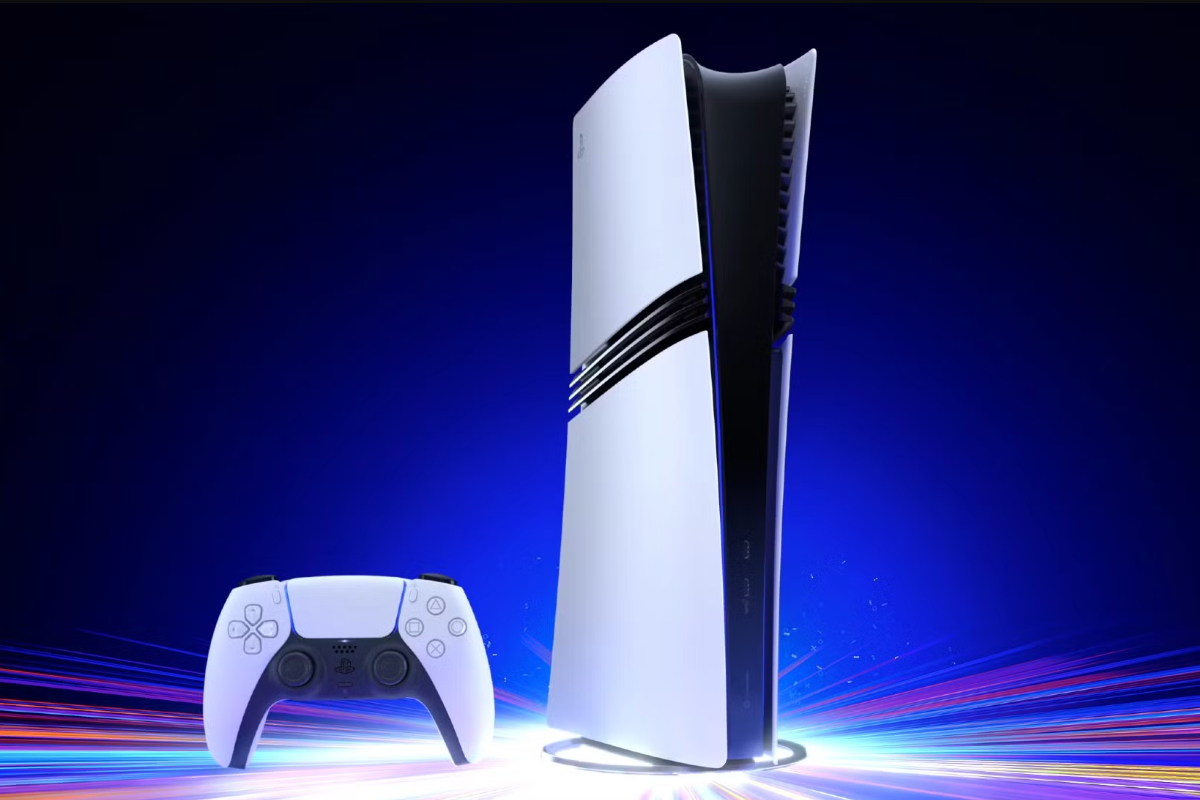
Created with GIMP
Sony
And then you have the PlayStation 5 Pro, which is controversially priced at $699. Whether or not you think its GPU upgrade justifies the price, we can’t deny that the PS5 Pro has several PC-like elements to it.
If you want a disc drive, you won’t get it out of the box. You’ll have to buy it separately, crack open your PS5, and install it yourself. While this isn’t ideal, nor is it the best option for many consumers, the fact that you have a choice is very PC-like… and upgrading PC parts, like your expensive GPU, has never been something for the faint of heart.
On the plus side, Sony has packed the PlayStation 5 Pro with PSSR, its AI upscaling technology that’s in line with Nvidia’s DLSS and AMD’s FSR. Falling between those other technologies, PSSR allows games to look better while performing at a higher frame rate overall.
Many games will support a PS5 Pro enhancement mode, which in a vague way resembles having an upgraded GPU on a PC that unlocks more features and graphical tweaks. You won’t get Nvidia’s frame generation without a newer GeForce RTX 40 Series GPU, for example.
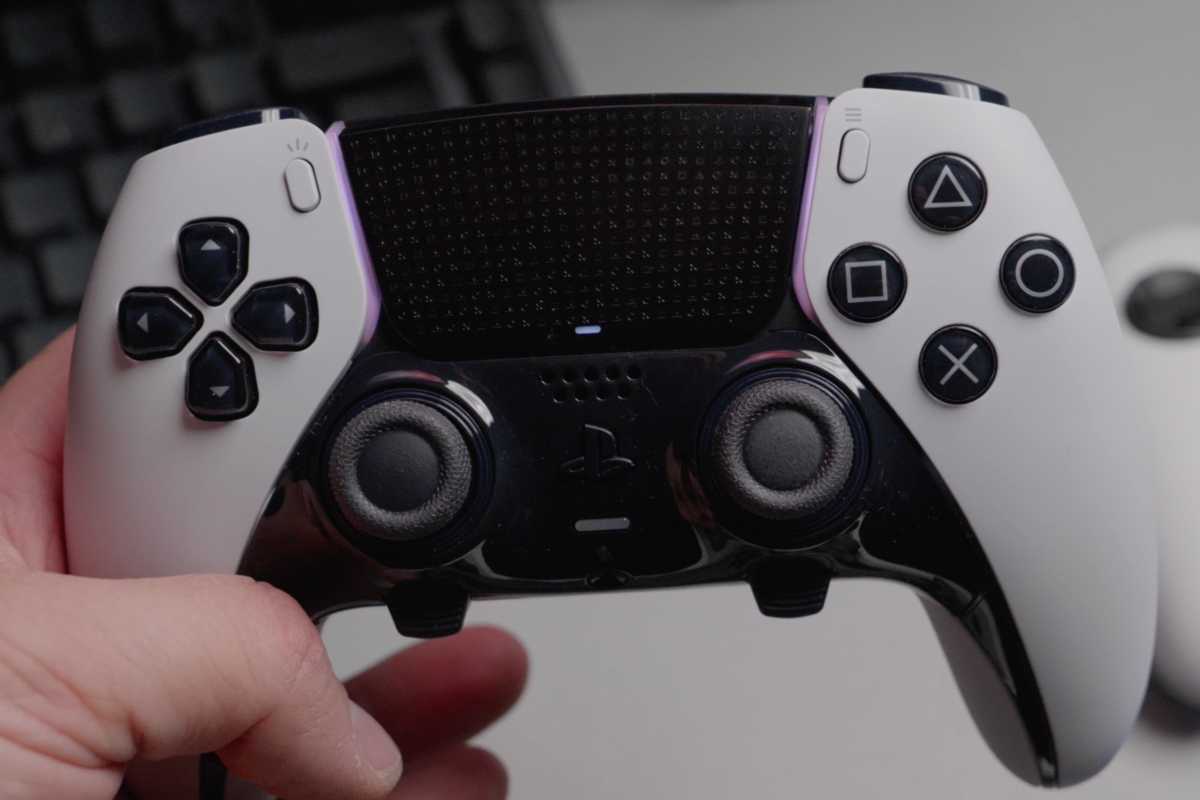
Thiago Trevisan / IDG
Sony has also been supportive of its hardware being used on the PC side. The popular PS5 DualSense controller, for example, now works with PCs effortlessly. The high-end PlayStation DualSense Edge controller even has an accompanying PC app that allows you to customize it and set profiles, all available first-party from Sony.
While the DualSense is still at its best when played wirelessly on the PS5, the PC experience isn’t far off. Most haptics and adaptive triggers work in many games wirelessly, and if you want the full haptic experience (like feeling the impact of your horse in Ghost of Tsushima), you can plug the controller via USB on PC and you’re set.
And we can’t forget the PlayStation VR2, Sony’s somewhat slow-selling virtual reality headset that works on PC and intertwines the realm of PC with the PS5. Sony released a PC adapter for the PSVR2, allowing owners to use it on both the console and PC.
All of this, coupled with the PlayStation games that do make their way to the PC, means the line is ever blurring even for Sony. The future looks good for PlayStation and PC fans, with Sony open to more games landing on the PC and its PlayStation 5 Pro console also capable of good performance for PC titles that make their way over, too.
Nintendo, handhelds, and PC gamingLast, but certainly not least, we have Nintendo and the world of Switch-like handhelds that have cropped up over the last few years. That’s mainly the Steam Deck, but don’t overlook its competitors like the Asus ROG Ally X and the Lenovo Legion Go.
Nintendo remains distinctly unique in the gaming space. It has the most walled-in garden of all, with numerous titles and franchises exclusive to its platforms. There’s a near-zero chance you’ll ever see a first-party Super Mario, Legend of Zelda, or Pokemon on Xbox, PlayStation, or PC.
But if you look past the games made and published directly by Nintendo, you’ll find that the Switch’s library isn’t so far off from that of the other consoles or the PC. Most games are now developed with cross-platform availability in mind from the start, so titles like Hogwarts Legacy are playable no matter which one you stan.
And while the Nintendo Switch was an innovation when it came out in 2017, going several steps ahead of past handhelds like the PlayStation Vita, it has since lost its novel spark. The Steam Deck, and others like it, have taken the form factor and infused it with PC gaming. You can now play your PC games on the go effortlessly.
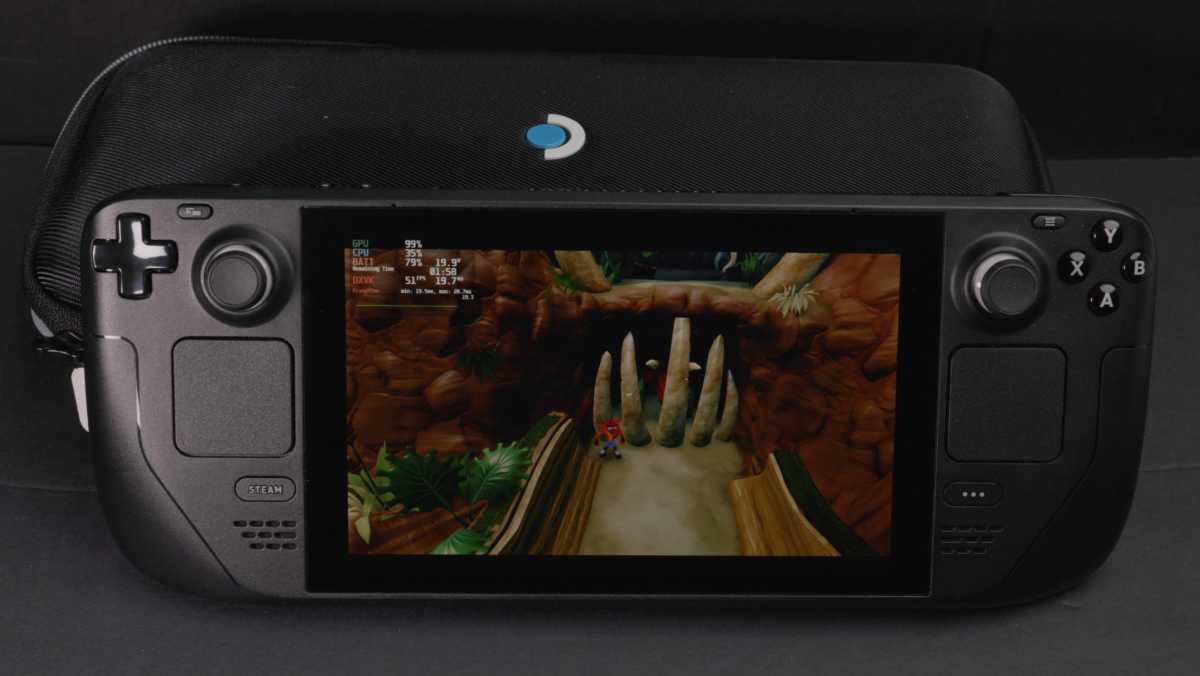
Thiago Trevisan / IDG
The Steam Deck is wasn’t the first PC gaming handheld, but it was the first to see this kind of success. It allowed PC gamers to go mobile without having to abandon or re-purchase their Steam libraries. This might just be the most monumental blending of console and PC to date, and it means that the future is bright for even better hardware to emerge.
More recently, there are now even well-substantiated rumors that Sony plans to make a portable PS5 handheld. If this does come to pass, that would put significantly more pressure on Nintendo as they face one more competitor that could blunt their competitive edge.
Nintendo clings to exclusivity to keep hardware sales high, and its games are good enough that gamers from other platforms will snag a Switch just to play them. You have no choice here — if you want to play them, you have to buy in or go without.
But with the Nintendo Switch 2 releasing next year, change might be afoot. Even a well-entrenched console maker like Nintendo can’t ignore the tide of the times ahead. When we now have the vast possibilities of PC gaming available on devices like the Steam Deck, I wouldn’t be surprised if more and more gamers opt to go without. And if that happens, Nintendo will have to win them some other way.
Almost everything is coming togetherHere at the end of 2024, we have a clear picture of where consoles stand in light of PC gaming: the Xbox is basically already a PC; the PS5 and PS5 Pro straddle both ends of the spectrum while trying to blend with PC; Nintendo stubbornly sits at the opposite end with its own walled garden of exclusives; and handhelds are trying to replicate the magic of the Switch in a way that’s compatible with existing PC game libraries.
No doubt, people will still stan one or the other. We’ll never see the end of Xbox fans, PlayStation fans, Nintendo fans, and the PC master race. But that debate is now largely superficial. No particular platform is truly unique, and we should be grateful that these companies are willing to work together — at least somewhat — to provide such excellent gaming experiences regardless of which platform we’re on.
